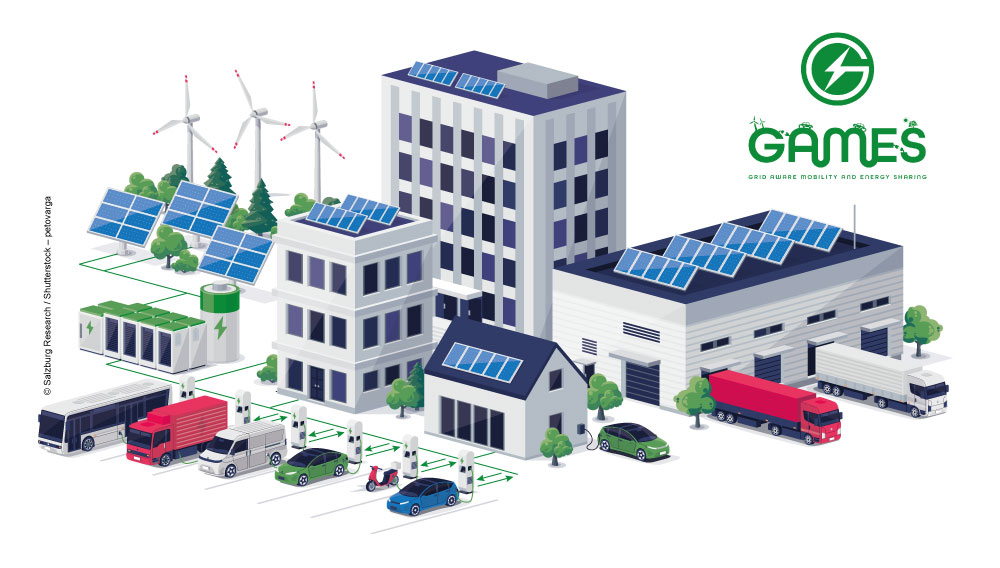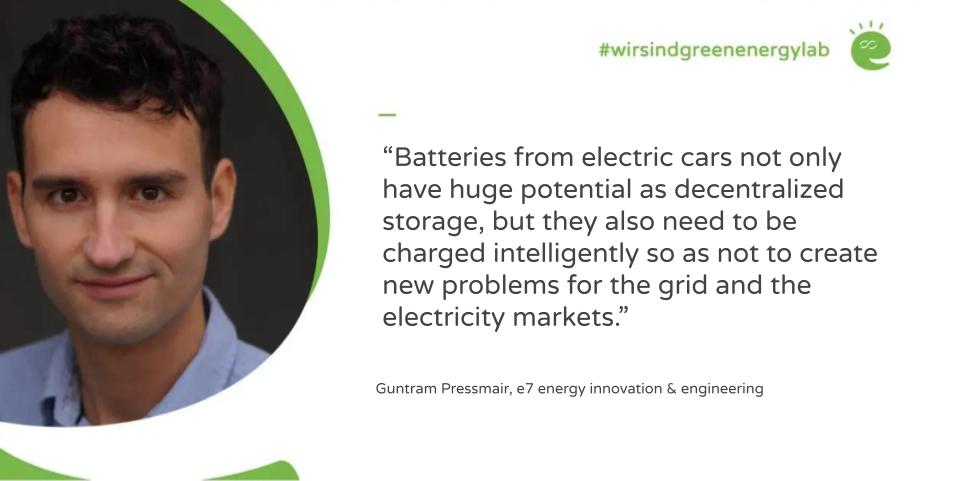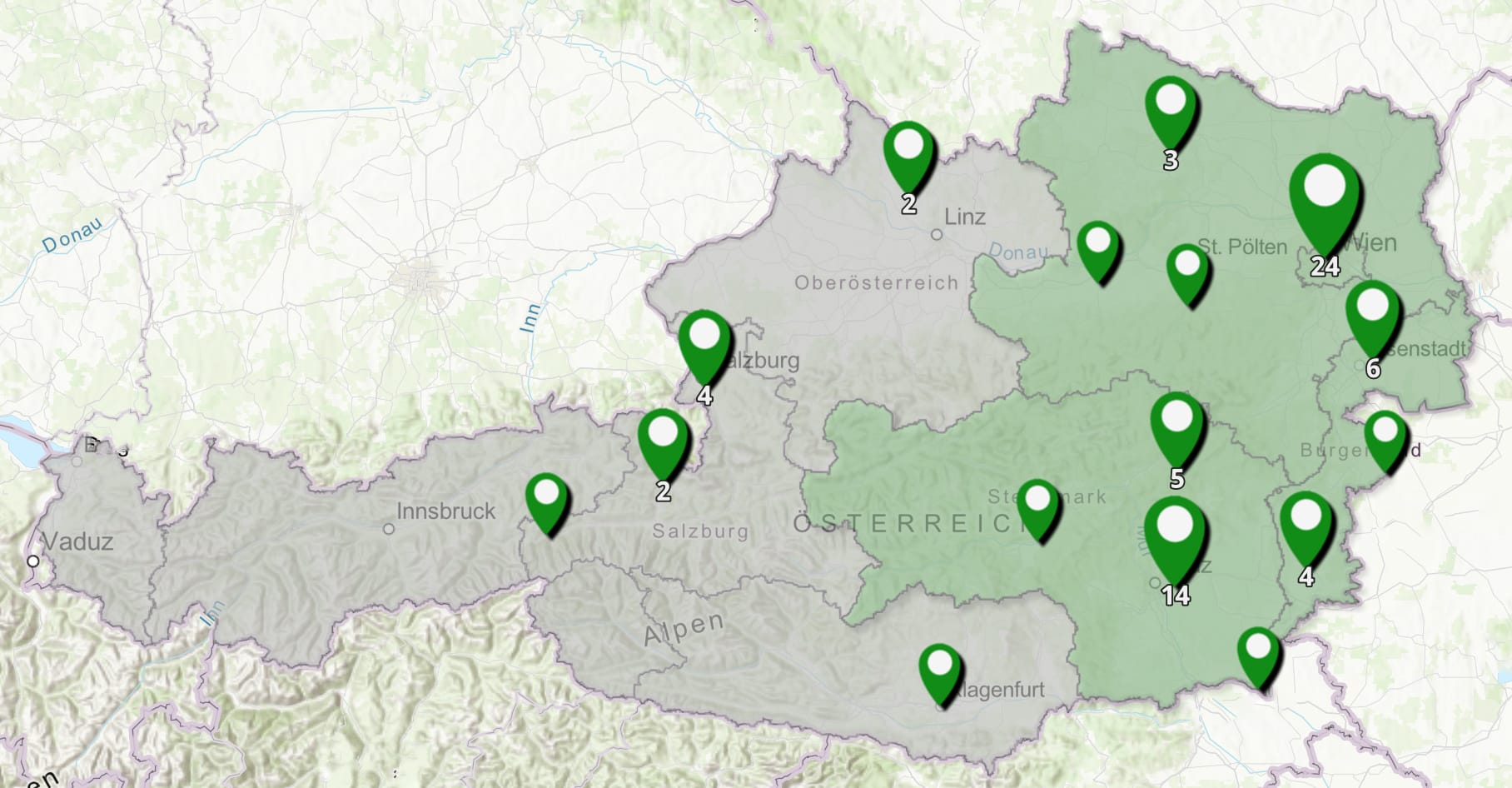GAMES – Grid Aware Mobility and Energy Sharing
Grid-aware mobility and energy sharing
This research project has been completed. Access the GAMES Results Fact Sheet here.
The overall concept of using EVs as flexible storage seems simple and convincing: There are countless cars spread out throughout our cities, moving during rush hour but idle most of the day. With modern cars having battery capacities from 50 up to 100 kWh, this sums up to vast amounts of battery storage being available for supporting electricity grids and shifting energy demand towards times of renewable surplus generation. But what sounds like a low hanging fruit in theory faces a lot of practical barriers: How to coordinate all those cars in an efficient manner? Does it affect the lifespan of the batteries? And most importantly, is there actually a viable business model for both fleet owners and energy industry?
The project focused on the latter question and investigated potential business opportunities in three distinctive case studies: from PV self-consumption optimisation at a company headquarter in Austria, peak shaving for better grid stability in the city of Zurich, to using PV surplus generation in a (possibly) highly solar energy system of Tel Aviv metropolitan area in the year 2030 – all made possible by deploying smart charging strategies of electric vehicles, operated as shared vehicle fleets.
These case studies were used to analyze which energy prices, tariff structures, fleet sizes, etc. are necessary to realize such business models as quickly as possible. The analysis was based on real and simulated mobility data from the national partners in Switzerland (Mobility.ch and SUPSI University) and Israel (AutoTel and Reichman University) and used the “e7 Flexibility Model”, which was developed specifically for the GAMES project by the Austrian research and consulting company e7 energy innovation & engineering.
© JPP ERA-NET SES
This project has been funded by partners of the ERA-Net Smart Energy Systems and Mission Innovation through the Joint Call 2020. As such, this project has received funding from the European Union’s Horizon 2020 research and innovation programme under grant agreement no. 883973.
Links:
The following model solutions were being developed in the GAMES – Grid Aware Mobility and Energy Sharing project:
Consulting service for the integration of e-car sharing fleets into local energy systems
Media reports on the project
GAMES Industry Whitepaper (executive summary)
GAMES Industry Whitepaper – New Business Opportunities leveraging the Flexibility Potential of electric shared Vehicle Fleets (executive summary)
To the articleGAMES Industry Whitepaper (full version)
GAMES Industry Whitepaper – New Business Opportunities leveraging the Flexibility Potential of electric shared Vehicle Fleets (full version)
To the article



